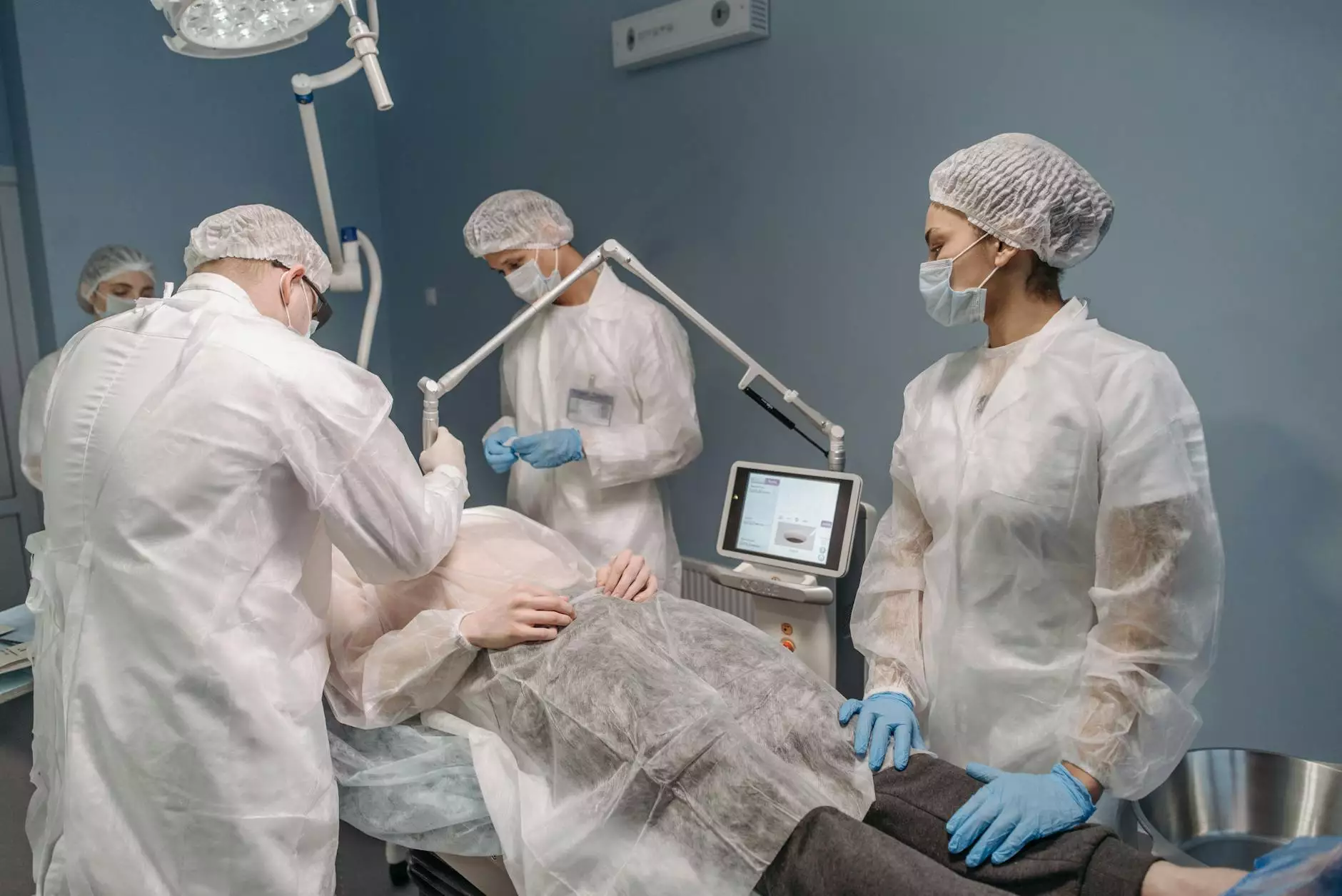Understanding Chest Surgery: A Comprehensive Guide

Chest surgery is a vital medical field that encompasses a range of procedures aimed at diagnosing and treating diseases and conditions affecting the chest region. With advancements in technology and surgical techniques, chest surgery has evolved, leading to improved outcomes for patients. In this in-depth article, we will explore the different types of chest surgery, their procedures, benefits, risks, and overall impact on health.
What is Chest Surgery?
Chest surgery refers to surgical procedures that involve the chest cavity, primarily focused on the heart, lungs, esophagus, and other organs located within this critical area of the body. It plays a crucial role in both diagnosis and treatment of various health issues, ranging from tumors and trauma to chronic lung diseases.
Types of Chest Surgery
Chest surgery can be broadly categorized into several types, each serving unique purposes and addressing specific medical conditions. Here’s a closer look:
1. Thoracic Surgery
Thoracic surgery involves operations performed on the thorax, which includes the lungs and mediastinum (the area between the lungs). Common procedures include:
- Lobectomy: Removal of a lobe of the lung, often due to lung cancer or severe infections.
- Pneumonectomy: Removal of an entire lung, typically performed for advanced lung cancer.
- Video-Assisted Thoracoscopic Surgery (VATS): A minimally invasive technique that allows surgeons to access the chest cavity through small incisions.
2. Cardiac Surgery
The heart is a vital organ, and cardiac surgery aims at treating various heart conditions. Some common cardiac surgical procedures include:
- Coronary Artery Bypass Grafting (CABG): A procedure to improve blood flow to the heart by bypassing blocked arteries.
- Heart Valve Surgery: Repair or replacement of damaged heart valves.
- Heart Transplant: Replacing a failing heart with a healthy donor heart.
3. Esophageal Surgery
Esophageal surgery focuses on problems with the esophagus, which can include:
- Esophagectomy: Removal of part or all of the esophagus due to cancer or other diseases.
- Fundoplication: A procedure to treat gastroesophageal reflux disease (GERD) by wrapping the top of the stomach around the esophagus.
The Importance of Chest Surgery
Chest surgery is a critical intervention that can significantly improve the quality of life for patients suffering from serious health issues. The ability to remove tumors, repair or replace heart valves, and treat chronic diseases has led to higher survival rates and better overall health outcomes.
Preparing for Chest Surgery
Preparation for chest surgery involves comprehensive evaluation and planning. Here are essential steps:
- Consultation: Patients will meet with their surgeon to discuss their medical history, symptoms, and concerns.
- Diagnostic Tests: Tests such as CT scans, MRIs, and pulmonary function tests may be conducted to assess the condition.
- Preoperative Instructions: Patients will receive specific instructions regarding fasting, medications, and lifestyle adjustments prior to surgery.
The Surgery Process
The actual surgery will vary depending on the type of procedure but generally follows these steps:
- Administration of Anesthesia: General or regional anesthesia is administered to ensure patient comfort during the surgery.
- Incision: The surgeon makes an incision in the chest to access the relevant organs.
- Procedure Execution: Depending on the condition, the surgeon removes or repairs the affected area.
- Closing the Incision: After completing the procedure, the surgeon closes the incision using sutures or staples.
- Post-Surgical Care: Patients are moved to a recovery area where they are monitored as they wake from anesthesia.
Recovery After Chest Surgery
Recovery from chest surgery can differ widely among patients and depends on the complexity of the procedure. Key recovery aspects include:
- Hospital Stay: Length of stay varies, but typically patients remain in the hospital for several days to monitor their recovery.
- Pain Management: Managing discomfort through medications is an essential part of recovery.
- Respiratory Therapy: Breathing exercises and therapies may be implemented to help restore lung function.
- Follow-Up Care: Regular follow-up appointments are crucial for monitoring the healing process and addressing any potential complications.
Risks and Complications
As with any surgical procedure, chest surgery involves risks. Understanding these risks helps patients make informed decisions. Potential complications include:
- Infection: Post-surgical infections can occur, requiring additional treatment.
- Bleeding: Excessive bleeding during or after surgery might necessitate a blood transfusion.
- Pneumonia: A risk in surgeries involving the chest due to decreased mobility during recovery.
- Respiratory Complications: Changes in lung function may occur, especially in patients with pre-existing lung conditions.
Success Rates and Outcomes
The success rates of chest surgery largely depend on the nature of the procedure, the patient’s overall health, and the skill of the surgical team. Advances in surgical techniques, such as minimally invasive surgery, have substantially improved outcomes. Many patients experience enhanced quality of life, reduced symptoms, and extended survival rates following successful surgeries.
Finding a Qualified Surgeon
Choosing the right surgeon is critical for successful chest surgery. Here are some key factors to consider:
- Qualifications: Ensure the surgeon is board-certified in thoracic or cardiac surgery.
- Experience: Look for a surgeon with extensive experience in the specific procedure you require.
- Hospital Affiliations: Consider the reputation and resources of the hospital where the surgery will take place.
- Patient Reviews: Read testimonials and feedback from past patients to gauge satisfaction.
The Future of Chest Surgery
As technology continues to progress, the future of chest surgery looks promising. Innovations include:
- Robotic Surgery: Enhanced precision and reduced recovery times through robotic assistance.
- Telemedicine: Remote consultations and follow-ups increase accessibility to specialized surgeons.
- Advanced Imaging: Better diagnostic tools and techniques improve surgical planning and execution.
Conclusion
Chest surgery is a foundational component of modern medicine that plays a critical role in managing severe health concerns affecting the chest and its contents. With advancements in techniques and technologies, patients undergoing these procedures can expect better outcomes and enhanced quality of life. If you or a loved one is considering chest surgery, consult with a qualified medical professional to discuss the best options tailored to your needs.
For expert management and surgical care related to chest surgery, visit neumarksurgery.com, where you can find comprehensive services and resources tailored to support your healthcare journey.









